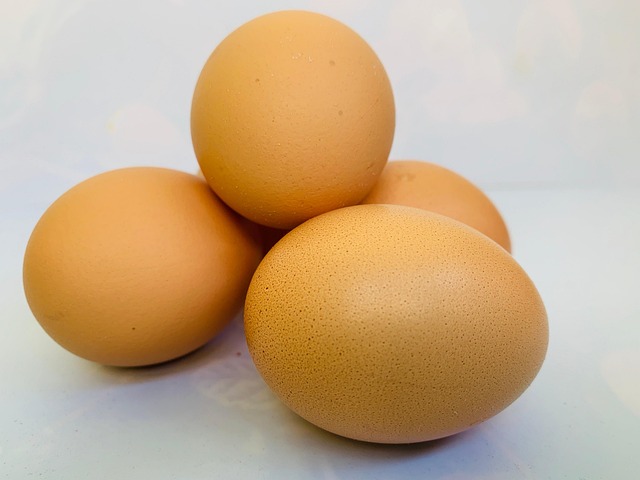Donor eggs significantly enhance IVF success rates, especially for older women or those with ovary issues or genetic disorders. Younger donors provide higher-quality eggs. Factors like recipient health, sperm quality, and medical team expertise also impact success. Preimplantation genetic testing and AI advancements further improve outcomes. Personal stories illustrate diverse paths to pregnancy using donor eggs, offering hope and inspiration.
“Unsure about your options for building a family? Exploring in vitro fertilization (IVF) with donor eggs? This comprehensive guide illuminates the success rates, considerations, and personal journeys surrounding this life-changing process. From understanding IVF’s role in achieving pregnancy to uncovering factors influencing success, you’ll gain valuable insights.
We delve into cutting-edge techniques enhancing outcomes and share inspiring stories of families built through donor eggs. Prepare to navigate this complex yet hopeful landscape.”
Understanding IVF and Donor Eggs
In-Vitro Fertilization (IVF) is a reproductive technology that has been instrumental in assisting countless couples to achieve their dream of parenthood. The process involves manipulating eggs and sperm outside the body, with the ultimate goal of creating a healthy embryo for implantation. When a woman chooses to use donor eggs for pregnancy, IVF becomes an even more specialized and potentially successful path. This is particularly relevant for individuals or couples facing fertility challenges related to ovary function or genetic disorders.
Donor eggs provide high-quality genetic material, which can significantly enhance the success rates of IVF treatments. By utilizing eggs from a young, healthy donor, the likelihood of achieving a successful pregnancy increases. This is because donor eggs often have better viability and fewer chromosomal abnormalities compared to those retrieved from an older or suboptimal egg source. As a result, IVF with donor eggs offers a promising solution for many individuals striving to build their families.
Factors Affecting Success Rates
The success rates of in-vitro fertilization (IVF) using donor eggs can vary significantly based on several factors. One key determinant is the age of the donor, as younger donors tend to produce higher quality eggs. This is especially important for women who are older and seeking to conceive with donor eggs. Additionally, the overall health and medical history of both the recipient and the donor play a crucial role. Conditions like hormonal imbalances, uterine abnormalities, or previous failures in IVF attempts can impact the success rate.
Another factor affecting IVF success rates with donor eggs is the quality of the sperm used in the process. The fertility and motility of the sperm are essential for fertilization. Also, the compatibility between the recipient’s immune system and the donor’s eggs and sperm is vital to prevent rejection and ensure a healthy pregnancy. Furthermore, the proficiency and experience of the medical team handling the IVF procedure significantly influence the outcome, as they employ advanced techniques to maximize the chances of successful implantation and pregnancy.
Optimizing Outcomes: Techniques and Trends
In the realm of assisted reproductive technology, optimizing outcomes with donor eggs for pregnancy is a delicate balance of cutting-edge techniques and evolving trends. Advanced procedures such as preimplantation genetic testing (PGT) have emerged as game changers, allowing for more precise selection of healthy embryos, thereby enhancing success rates. These advancements, coupled with tailored treatment plans, are revolutionizing IVF outcomes with donor eggs.
Moreover, continuous research into novel techniques, like the integration of artificial intelligence in embryo screening and personalized medicine approaches, promises to further refine success rates. As these trends continue to shape the landscape of IVF with donor eggs, folks seeking pregnancy can find hope and encouragement in the increasing effectiveness and accessibility of these treatments.
Personal Stories: Success and Beyond
Personal stories from individuals who have successfully conceived using donor eggs offer hope and inspiration. Many couples share their journeys, highlighting the emotional rollercoaster of IVF treatment. From initial uncertainty to the elation of a positive pregnancy test, these stories showcase the potential for success with donor eggs.
These narratives often include detailed accounts of the decision-making process, the choice of a donor, and the unique challenges faced. They paint a vivid picture of the diverse paths to parenthood, emphasizing that every story is different yet equally valuable. Such personal experiences serve as powerful reminders that donor eggs can be a viable option for those seeking to build their families, ultimately leading to the joy of welcoming new lives into the world.
IVF with donor eggs offers a promising path to parenthood for many individuals. By understanding the process, recognizing the factors influencing success rates, and embracing emerging techniques, those seeking to achieve pregnancy through this method can have realistic expectations of positive outcomes. Personal stories share the power to inspire hope while highlighting the unique journeys that lead to successful pregnancies and fulfilling families. When considering donor eggs for pregnancy, it’s essential to stay informed and connected to the latest advancements in IVF technology.
